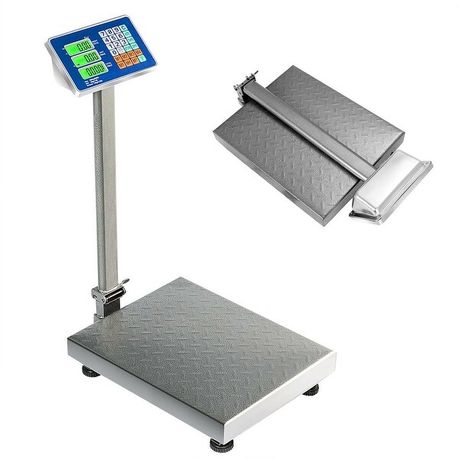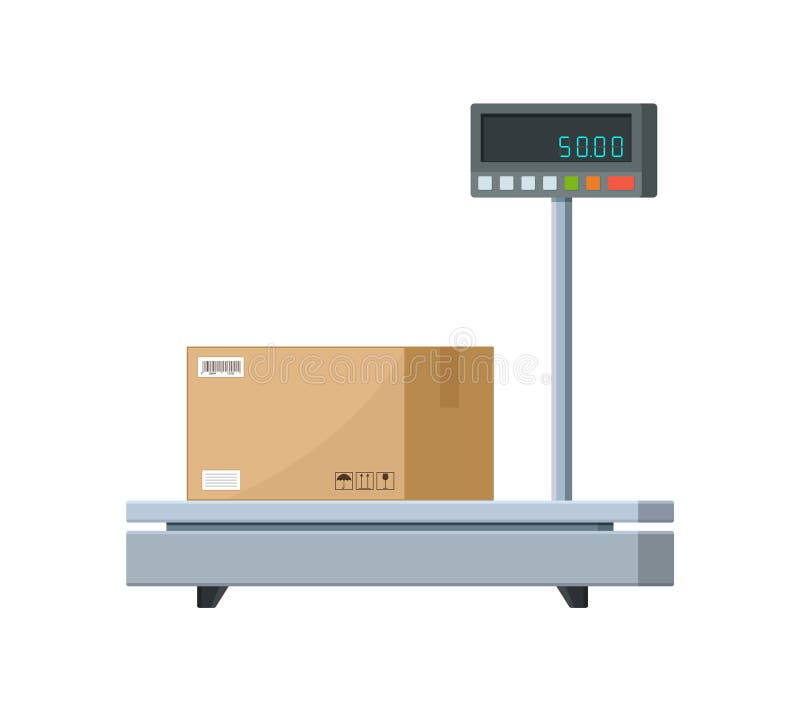How Industrial Scales Enhance Safety and Precision in Bulk Weighing Applications
How Industrial Scales Enhance Safety and Precision in Bulk Weighing Applications
Blog Article
Exactly How Commercial Scales Work: A Detailed Introduction for New Users
Comprehending the mechanics behind commercial scales is essential for brand-new individuals who want to ensure precision in their measurements. As we discover these elements, one should take into consideration exactly how these elements connect to improve efficiency in diverse commercial applications.
Fundamentals of Industrial Scales
Industrial ranges are necessary tools made use of across numerous industries, consisting of manufacturing, logistics, and farming, to guarantee exact weight measurements of hefty loads. The essential principle behind commercial ranges includes the conversion of weight into a quantifiable type that can be presented digitally or analogically. These ranges employ different mechanisms, such as tons cells or mechanical bars, to identify the weight of things put upon them.

Along with their dimension abilities, industrial scales are designed to withstand harsh settings, including durable construction that withstands dust, dampness, and hefty effects. Calibration and maintenance are vital to ensure accuracy, as also minor disparities can bring about significant financial implications. By understanding the essentials of commercial ranges, users can appreciate their relevance in various industrial applications.
Kinds of Industrial Scales
Different kinds of commercial scales provide to the varied needs of various markets, each designed to take care of details evaluating tasks with accuracy and reliability. Amongst the most usual kinds are floor ranges, which are perfect for considering cumbersome and heavy things. These scales commonly feature huge platforms and can suit palletized products, making them essential in storehouses and shipping facilities.
Another kind is bench ranges, which are typically made use of for smaller items in production and retail setups. They provide precise dimensions for products that need accuracy, such as chemicals or components in assembly lines (Industrial Scales). For mobile operations, portable ranges supply flexibility and simplicity of transportation, ideal for fieldwork or temporary setups
In applications calling for high-capacity dimensions, such as wholesale material handling, crane scales and tons cells are utilized. These ranges can gauge lots suspended from a crane or other lifting device, making sure security and precision during operations. Additionally, specialized scales like checkweighers are utilized in production lines to preserve quality assurance by making certain that products satisfy weight specifications. Each sort of commercial range plays a critical role in enhancing functional performance and precision throughout numerous fields.
Just How Evaluating Systems Work
Considering devices are necessary parts that allow exact dimension of mass across different commercial scales. These mechanisms make use of different principles of physics and design to supply accurate weight readings, essential for supply administration, quality assurance, and conformity with regulative criteria.
One typical sort of considering system is the load cell, which official website operates the principle of pressure assesses. When a load is used, the load cell flaws somewhat, creating an electrical signal symmetrical to the weight. This signal is then exchanged a legible weight measurement by the scale's electronic devices.
Another commonly used system is the mechanical balance, which utilizes a system of weights and levers. Industrial Scales. This approach counts on the concept of equilibrium, where the weight of the item being gauged is stabilized against recognized weights, enabling direct measurement
Additionally, pneumatically-driven and hydraulic ranges utilize liquid dynamics principles to measure weight. These systems make use of the stress applied by a tons to determine weight, providing high precision for huge lots.
Appropriate Use Methods
When making right here use of commercial scales, adhering to correct usage methods is vital for making certain exact dimensions and keeping equipment stability. First and foremost, it is important to select the appropriate range for your certain application, as scales differ in ability and accuracy.
Prior to considering, make sure that the range is positioned on a steady, degree surface without vibrations or disturbances. This will certainly assist to reduce mistakes caused by outside factors. Additionally, calibrate the scale according to the manufacturer's requirements before utilize, ensuring that it is working properly.
When positioning products on the range, distribute the weight evenly to stay clear of tipping or damaging the devices. Constantly allow the scale to maintain before videotaping the weight, as variations might take place throughout preliminary positioning. For bulk products, make use of containers that are suitable for the scale dimension to avoid overloading.
Furthermore, stay clear of putting chilly or overly warm things directly on the range, as temperature variations can affect precision. Maintain the weighing system complimentary and clean of particles to prevent contamination and make certain reputable results. By complying with these techniques, individuals can maximize the performance and durability of their industrial scales.
Upkeep and Calibration Tips
Guaranteeing the long life and accuracy of commercial ranges needs attentive maintenance and routine calibration. A preventive maintenance schedule is crucial; it ought to consist of routine assessments to identify deterioration, specifically on load cells and other sensitive parts. Routinely cleaning the scale's surface area and making certain the surrounding location is cost-free from debris will certainly aid maintain its honesty and performance.
Calibration is just as essential and must be carried out at normal periods or whenever the range experiences significant changes in temperature level, humidity, or physical variation. Make use of licensed calibration weights that are deducible to nationwide standards for accuracy. Document each calibration session diligently to track performance in time and determine any trends or reoccuring issues.
Furthermore, be conscious of the scale's setting. Stay clear of positioning it near resources of vibration, electromagnetic interference, or severe temperatures, as these elements can adversely affect measurements. Train all drivers on correct scale use and upkeep procedures to guarantee consistent performance and precision. By sticking to these maintenance and calibration ideas, individuals you could try this out can improve the reliability of their industrial ranges, ensuring optimum procedure in any type of setting.
Final Thought

Comprehending the auto mechanics behind industrial scales is important for new individuals who want to guarantee accuracy in their dimensions.Industrial ranges are vital devices made use of across various industries, including manufacturing, logistics, and farming, to make certain exact weight dimensions of hefty loads. The basic principle behind industrial scales entails the conversion of weight into a quantifiable kind that can be displayed digitally or analogically. By recognizing the essentials of industrial scales, customers can value their value in different industrial applications.
In verdict, recognizing the procedure and maintenance of industrial ranges is vital for making sure accurate weight dimensions in different applications. (Industrial Scales)
Report this page